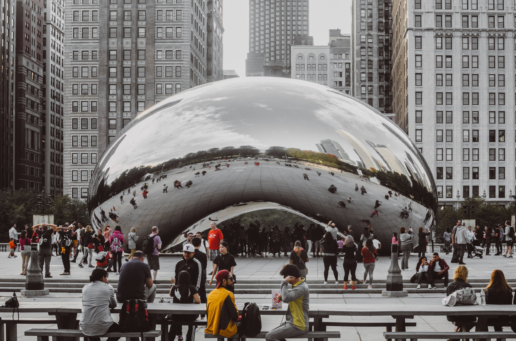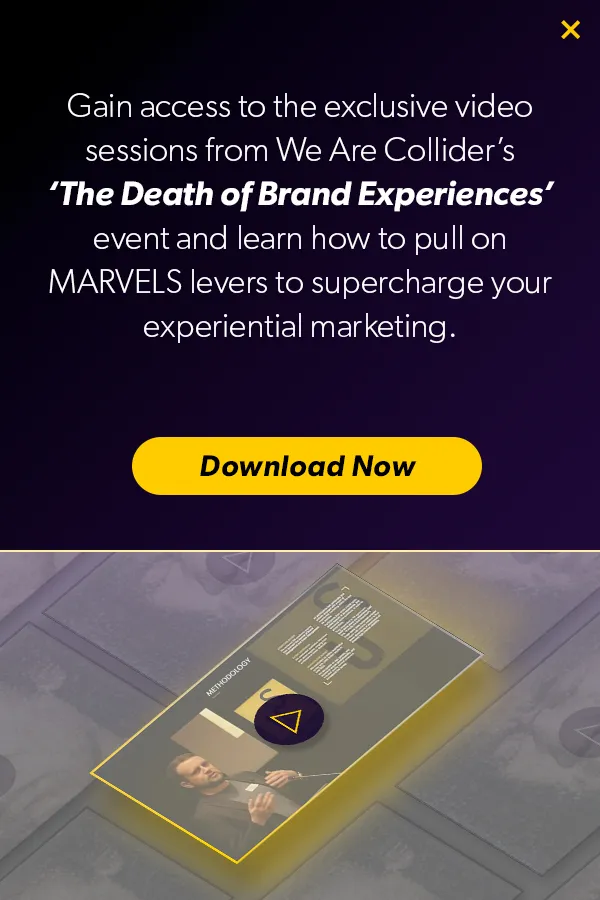
Mark Baron, Production Director at We Are Collider, shares how dyslexia shaped his school years and fed into his creativity, leading him to the bustling events industry. Immersing himself in the world of Theatre as an escape from the conventionalities of schooling, Mark recognised his Dyslexia as his superpower from a young age, recognising how it shaped his problem-solving skills. In this interview, Mark emphasises the importance of neurodiversity in the creative industry and calls for more inclusive workplaces. He praises the events industry for embracing diverse thinking, highlighting it as a welcome space for roles that demand a unique perspective.
Tell us why/how you got into working in events in the creative industry.
I got into it because I couldn’t do anything else.
And… I was terrible at school. I loved the social aspect, but I couldn’t stand the classes.
I have quite extreme dyslexia, so it was never going to work out, but I fell into “helping” at a local theatre in sunny Skegness when I was 13, and that kick-started everything.
My dad worked at Butlins, and my mom and grandma used to be part of the Skegness amateur dramatics society. So, not only was this path inevitable, but it meant I also spent my early childhood sitting in the back of a rehearsal room. From the age of 13, I started helping out in shows and by 16, I was obsessed and working on all sorts of shows, from Chuckle Brothers to Elvis impersonators (Rock and Roll!).
I realised there was nothing academic for me out there and I knew that I should put my efforts into what I loved. For me, that was seaside theatre, next to a great fish and chip shop, because at a very early age I knew I wanted to put on shows, and that it was something I could do, rather than writing.
When I say I was bad at school, for context, I don’t have any GCSEs or A-Levels above a D, so traditional university was not an option. But I wanted to go to the Guildhall School of Music and Drama to study Technical Theatre, to understand how to put on shows. So, I applied and in my cover email I explained that I’d been sitting in rehearsal rooms from a young age and had been working in a theatre for many years despite being only 17. I got in, and the rest was history.
I finished the course, did some work experience at the experiential agency Imagination, and ended up staging for 10 years, working my way up to production director, before joining We Are Collider, where I am now the Executive Producer.
We strongly believe that Neurodiversity offers huge untapped creative potential for businesses and believe in building teams with people who can think differently. In what way do you feel dyslexia has had a positive impact on your role and the organisation?
So, my opinion (and it is not a scientific one) is that if you are dyslexic, you spend your early life undiagnosed. This means that if you can’t do things the same way as everyone else, you naturally find new ways to do things. You think differently, you think creatively, and this continues throughout your life. Everything is effectively a problem, and there is not anyone there to teach you how to fix it, because you don’t fit the mainstream.
Dyslexia is incredible. It’s the best thing that’s ever happened to me. Now, fixing things in a different way to other people is just second nature. What’s incredible about neurodiversity is that you’ve got people who all have a different way of thinking. Everyone will approach the same problem in completely different ways. The more people do that, the more ideas get bounced around. If we all thought exactly the same way, you’d only ever have one answer to your question. But we’ll all answer it completely differently, and we’ll end up with different results. I think that’s why it’s really important.
What more do you feel could be done to better support employees with neurodiversity in the creative industry? And what advice would you give other businesses?
I would say our industry, beyond every other industry, is one of the best, because it’s quite hard to do our job unless you’re able to think differently. Some businesses are better at allowing their employees to breathe and be more free with the way they work than others. As an industry, we wouldn’t survive without it. If you look at the theatre industry, as well, it’s similar. Creativity, at the end of the day, is thinking about things differently and doing things in different ways.
Ultimately, I think a lot of businesses need to be less judgmental about how people work and perhaps look beyond education. It’s similar with background, different socioeconomic backgrounds can create very different views and ways of approaching tasks and problems. They can also build incredible resilience and drive. Our industry, as all others, must seek out diversity of thinking and background.
Knowing what you know, now, what advice would you offer young people with dyslexia starting out in their career?
Another thing I’d say to those just starting out is to change your perception of ‘it’. I have never (and it’s probably because I’m a bit cocky) seen dyslexia as any form of disability. I’ve always viewed it as an opportunity to do things differently, and it has helped me to stand out. This approach may not work in every industry, but in this industry, it absolutely does. I would be baffled to find a creative director or an executive producer who doesn’t have some form of neurodiversity, which enables them to challenge convention and think differently. That’s because you benefit from it in this industry. There are very few industries that can say that. If we can benefit from it, we should be shouting about it and encouraging people with it to join us, because we’ll only be better for it.



